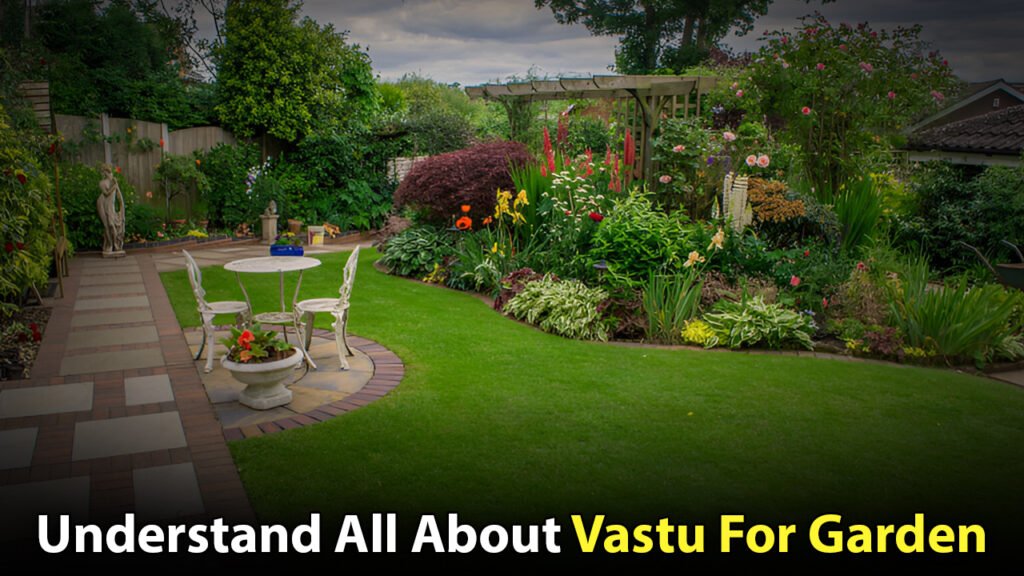Understand All About Vastu For Garden
Gardens are not just spaces for relaxation and recreation; they are extensions of our homes that can significantly influence the energy flow within our living environments. According to Vastu Shastra, the ancient Indian science of architecture and design, gardens play a vital role in enhancing positivity, prosperity, and well-being. Understand All About Vastu For Garden and how a well-designed space aligned with Vastu principles can create a harmonious connection between nature and your home, fostering peace, abundance, and vitality. In this blog, we will explore everything you need to know about Vastu for gardens, including ideal layouts, plant selection, water features, and answers to frequently asked questions.
Read blog on: Reasons to Avoid Brown Color in Your Childs Room Based on Vastu
The Importance of Vastu for Gardens
Vastu Shastra emphasizes the balance of five elements—Earth, Water, Fire, Air, and Space—to create harmony in any space. A garden is a perfect representation of these elements, as it combines soil (Earth), water bodies (Water), sunlight (Fire), breezes (Air), and open skies (Space). When designed according to Vastu principles, a garden becomes a source of positive energy that benefits the entire household.
Why Follow Vastu for Your Garden?
- Attracts Positive Energy: A Vastu compliant garden invites auspicious vibrations and wards off negativity.
- Enhances Health and WellBeing: Plants purify the air, reduce stress, and promote mental clarity.
- Boosts Prosperity: Proper placement of plants and features like fountains or ponds can attract wealth and abundance.
- Strengthens Relationships: A balanced garden fosters harmony among family members and visitors.
- Connects You with Nature: A Vastu aligned garden helps you reconnect with the natural world, promoting mindfulness and gratitude.
Key Principles of Vastu for Gardens
To create a garden that aligns with Vastu Shastra, consider the following guidelines:
1. Location of the Garden
Front Yard: Ideally, the garden should be located in the front yard (North or East) rather than the backyard. This placement ensures that fresh energy enters your home through the main entrance.
Avoid South West Corner: The South West is associated with stability and strength. Having a garden here may disrupt the balance of energy and lead to financial instability or health issues.
2. Shape and Layout
Rectangular or Square Shape: These shapes are considered auspicious as they represent stability and order.
Avoid Irregular Shapes: Gardens with uneven boundaries or sharp corners can create imbalanced energy.
3. Plant Selection
Fruit Bearing Trees: Trees like mango, banana, lemon, and coconut symbolize abundance and prosperity. Place them in the North, East, or North East directions.
Flowering Plants: Fragrant flowers like jasmine, rose, and marigold enhance positivity. They are best suited for the North East corner.
Avoid Thorny Plants: Plants with thorns, such as cacti or bougainvillea, should be avoided as they attract negative energy. If necessary, place them in the South or West directions.
Tulsi Plant: Basil (Tulsi) is highly revered in Vastu and Hindu traditions. Keep it in the North East corner to purify the air and invite divine blessings.
4. Water Features
Fountains and Ponds: Water represents wealth and prosperity. Install fountains or small ponds in the North, East, or NorthEast directions to activate financial growth.
Flowing Water: Ensure that water flows inward toward the house, symbolizing the inflow of resources and opportunities.
Avoid Stagnant Water: Stagnant water pools can breed mosquitoes and attract negative energy.
5. Pathways and Seating
Curved Pathways: Straight pathways leading directly to the main door can allow negative energies to enter the house. Opt for curved or meandering paths instead.
Seating Arrangements: Place benches or seating areas in the North or East directions to enjoy peaceful moments while soaking up positive vibes.
6. Lighting and Decorations
Natural Light: Maximize the use of natural light by keeping the garden open and unobstructed.
Lanterns and Fairy Lights: Use soft lighting to illuminate the garden at night. Avoid harsh or overly bright lights.
Statues and Ornaments: Decorate with statues of deities, animals, or symbols of nature. However, avoid broken or damaged items, as they bring bad luck.
Benefits of a VastuCompliant Garden
Designing your garden according to Vastu principles offers numerous advantages:
- Improved Energy Flow: A Vastu aligned garden ensures smooth circulation of positive energy throughout your home.
- Increased Productivity: Spending time in a harmonious outdoor space boosts creativity and focus.
- Better Sleep and Relaxation: The calming atmosphere of a Vastu garden promotes restful sleep and reduces anxiety.
- Enhanced Curb Appeal: A thoughtfully designed garden adds aesthetic value to your property.
- Environmental Benefits: By planting trees and shrubs, you contribute to cleaner air and a healthier ecosystem.
Common Mistakes to Avoid in Vastu for Gardens
While designing your garden, steer clear of these common pitfalls:
- Overcrowding: Too many plants or structures can block the free flow of energy.
- Improper Placement of Trees: Large trees in the center or near the house can obstruct sunlight and create imbalance.
- Neglecting Maintenance: An unkempt garden with dead leaves or overgrown plants attracts negativity.
- Using Artificial Materials Excessively: While some artificial elements are acceptable, relying too much on synthetic decor can diminish the garden’s natural charm.
- Ignoring Directional Guidelines: Placing plants or features in unfavorable directions can negate their benefits.
FAQs for Understand All About Vastu For Garden
Here are answers to six frequently asked questions about Vastu for gardens:
- Which direction is best for planting trees in the garden?
The best directions for planting trees are North, East, and North East. These zones enhance positivity, prosperity, and spiritual growth. Avoid planting large trees in the SouthWest, as they may disrupt stability.
- Can I grow vegetables in my Vastu compliant garden?
Yes, growing vegetables is encouraged as long as they are planted in favorable directions like North or East. Vegetables symbolize nourishment and abundance, making them excellent additions to a Vastu garden.
- What type of plants should I avoid in my garden?
Avoid thorny plants, milky shaped plants, and those with negative connotations (e.g., banyan or fig trees). If unavoidable, place them in the South or West directions.
- Where should I place a water fountain in my garden?
Place a water fountain in the North, East, or North East directions. Ensure that the water flows inward toward the house to attract wealth and prosperity.
- Is it okay to have a lawn in the South West corner?
No, having a lawn in the South West corner is not recommended. This zone governs stability and strength, and a soft, low lying area like a lawn may weaken its energy.
- How often should I maintain my garden for optimal Vastu benefits?
Regular maintenance is crucial for sustaining positive energy. Prune plants, remove weeds, clean water features, and ensure proper lighting. Aim to tidy up your garden at least once a week.
If you want to watch Astrology Videos visit our YouTube channel: Acharya Ganesh
Conclusion of Understand All About Vastu For Garden
A garden designed according to Vastu Shastra is more than just a beautiful outdoor space—it is a sanctuary of positivity, tranquility, and prosperity. By adhering to Vastu principles, you can transform your garden into a haven that nurtures both your physical and spiritual wellbeing. From selecting the right plants to incorporating water features and lighting, every element contributes to creating a harmonious environment.
Remember, the essence of Vastu lies in intentionality and balance. Whether you’re starting from scratch or revamping an existing garden, take the time to align your outdoor space with nature’s rhythms and cosmic energies. Embrace the wisdom of Vastu Shastra, and let your garden become a reflection of harmony, beauty, and abundance.

